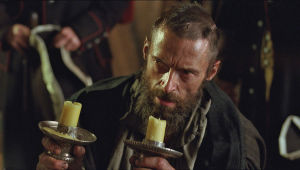When thinking about writing this month’s post, I had to think a bit harder than usual. To be honest, I’ve kind of written about the books that have inspired me, and the books that do thing’s so wrong that they stand out, I don’t tend to stick around long enough to really figure out what the writer’s were doing wrong.
Well, sometimes it’s obvious. There was that one book where the “hero” of the story rapes a innocent young girl. Then there was that other book where the author has this huge fight scene where the hero was doing a bunch of really cool things in quick succession, and the author stops to say, “but that’s not all!”, like he’s selling me something.
Other times, it’s not so obvious. I get confused or bored or just wonder when something important was going to happen. When I find myself in that situation, I just put the book down and move on. Though, that doesn’t happen often. I don’t know if I’m just really good at finding books I like or I’m just easy to please, but it takes a bit to turn me off a story.
So, like I said, I had to think a bit to find a story I could write about this month, and I hit upon a bit of Shakespeare that I read a bit ago, and then saw on stage, that was somewhat new to me. It’s a lesser known tragedy called Coriolanus, and it got me thinking about how I write heroes in my stories.
Honestly, I’m not a fan of writing heroes. My heroes are a bit boring. I guess I make them a little too straight-laced, a little too clean-cut to be interesting. This is probably why I gravitate to villains. Bad guys are more interesting, and far more fun to write, in my opinion.
For those who don’t know this play, it’s about a Roman general named Caius Marcius, who’s really good at his job, is loved by his family and friends, and despised by the populace. To tell the truth, the populace has kind of reason to hate the guy. I mean, we first meet him as he’s putting down a food riot spitting vitriol at the people and pretty much saying that they’re inconstant and can’t be trusted. Well, the guy’s kind of a jerk about it.
Anyway, Marcius goes off to war, practically conquers the city Corioli by himself, thereby gaining the name Coriolanus, almost gets elected Consul of the republic but gets banished from Rome instead when he loses it and goes on another rant against the common people, then joins the enemy and nearly conquers Rome but doesn’t because his mother and wife convince him to back down, then gets killed by the aforementioned enemy for getting talked out of war by two women. Though that summary doesn’t really show it, it’s a play about politics and what it means to be a political figure.
So, what makes Coriolanus so interesting to me? It’s how Shakespeare takes a guy who’s kind of a jerkface and overcomes that flaw by giving him one inspiring character trait. For Coriolanus, it’s his conviction. The guy believes what he says. He believes in Rome, in fighting for the people, and more than anything, in standing for what one believes, even when others don’t.
It’s a powerful thing, to have that kind of conviction. Belief like that grants the believer an awesome amount of charisma and charm they would not have otherwise. Coriolanus certainly wouldn’t. He’s a bit of an elitist prick, really. Yet, his wife is so distraught when he goes to war, she refuses to leave the house. His best friend, a politician himself, thinks Coriolanus could walk on water if he needed to. Heck, after getting banished, the guy even manages to talk his greatest enemy into giving him half his army, even after they’ve both vowed to kill each other on numerous occasions.
So, what has this shown me about heroes? For me, who has such issues with writing heroes, it helps solidify something that I’ve been working on learning for a while. That heroes aren’t heroes all the time. They are just humans with something about them that is extraordinary, and I’ve come to realize over the years that the more flawed a character is, the more human they seem. Coriolanus is a great example of that. A flawed human with one trait that makes him better than the norm.


